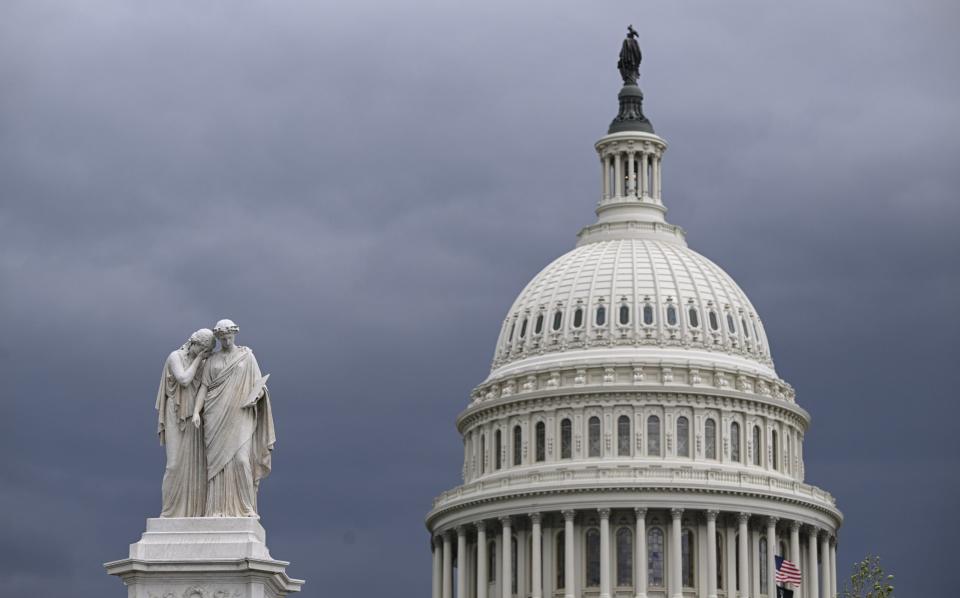US debt woes could trigger a return to favour for fund manager specialising in emerging markets

Regular readers will know that few things catch this column’s eye quite like a share price chart that goes from the top left of the screen straight to bottom right. It suggests a stock is unloved and unloved can mean undervalued.
The trick is to determine whether the business model is broken or simply challenged. In the case of Ashmore it is tempting to argue the problems are temporary and, better still, there may be a positive catalyst on the way that could lead to a reappraisal of the FTSE 250 constituent and its shares.
Ashmore is a fund management group that specialises in emerging market investments. It has more than 30 years’ experience of putting its clients’ money to work across bond and stock markets, as well as property, infrastructure and even private equity opportunities.
Two issues have dragged down the share price down to 234.4p from 2020’s peak of 570p (and even left it briefly languishing last year at levels not seen since 2009).
The first is that emerging markets have been out of favour. Investors want growth, they want technology, and they want America.
An environment of rising interest rates and uncertainty over the global economic outlook is not usually helpful for emerging markets and the war in Ukraine is a further potential deterrent to investors. Debt defaults in Sri Lanka, Ghana and the Chinese real estate sector continue to weigh on sentiment.
The second is that Ashmore’s own investments have not as done well as customers would like. February’s interim results showed 45pc of its assets under management beat their benchmark over one year, just 40pc over three years and 43pc over five years.
The net result of tough end-markets and poor returns is that assets under management are shrinking. The current $57bn (£46bn) pool of assets compares with a year-end high of $94.4bn in June 2021. That means lower fee income and lower profits. The moderate fund performance may also result in Ashmore attracting less money than its rivals, if and when emerging markets come back into favour.
However, improved returns from emerging market debt and equity markets would be a start, and this not as forlorn a hope as it seems. Capital markets, and capitalism, reward scarcity and they do so in the form of higher prices. Right now, there is a lot less debt coming from emerging markets than there is from their Western, developed equivalents.
Yes, certain countries are in trouble, including Tunisia, Ethiopia and Tunisia, not to mention potentially Turkey. But many emerging markets learnt harsh lessons during the Asian and Russian debt and currency crises of 1997-98.
Local interest rates are generally above the prevailing rate of inflation, while government debt-to-GDP ratios in Romania, Poland, Hungary, Korea and others are much lower than they are in Britain and the US, where the debt ceiling negotiations lay bare Uncle Sam’s borrowing woes.
US government tax receipts have fallen year on year in each of the last six months even as spending has continued to rise. America’s ability to meets its obligations is coming under duress. Welfare programmes took up broadly $3bn (£2.3bn) of the $5bn received by the US Treasury in tax receipts in the fiscal year to September 2022.
They are not going to go down, and interest payments on the federal debt are running at an annual cost of $928bn, thanks to interest rate increases driving up bond yields and borrowing costs.
Those two figures do not leave much for anything else – and point to further increases in the annual and aggregate federal deficit, and hence the need to raise the debt ceiling.
This also means the US Federal Reserve will be only able to push interest rates so far before the government’s interest bill becomes too large a burden. The result could well be interest rate cuts and a weaker dollar, thus removing two major headwinds to emerging market performance at a stroke.
In addition, the US government may have to just keep on borrowing more and more. The Fed could mop this up with more bond buying (and quantitative easing), but investors looking for assets for yield where this is no tidal wave of supply could just look to emerging market debt. In Questor’s view, Ashmore could ride a return to favour for emerging markets.
Questor says: buy
Ticker: ASHM
Share price at close: 234.4p
Russ Mould is investment director at AJ Bell, the stockbroker
Read the latest Questor column on telegraph.co.uk every Sunday, Tuesday, Wednesday, Thursday and Friday from 6am.
Read Questor’s rules of investment before you follow our tips

 Yahoo Finance
Yahoo Finance 